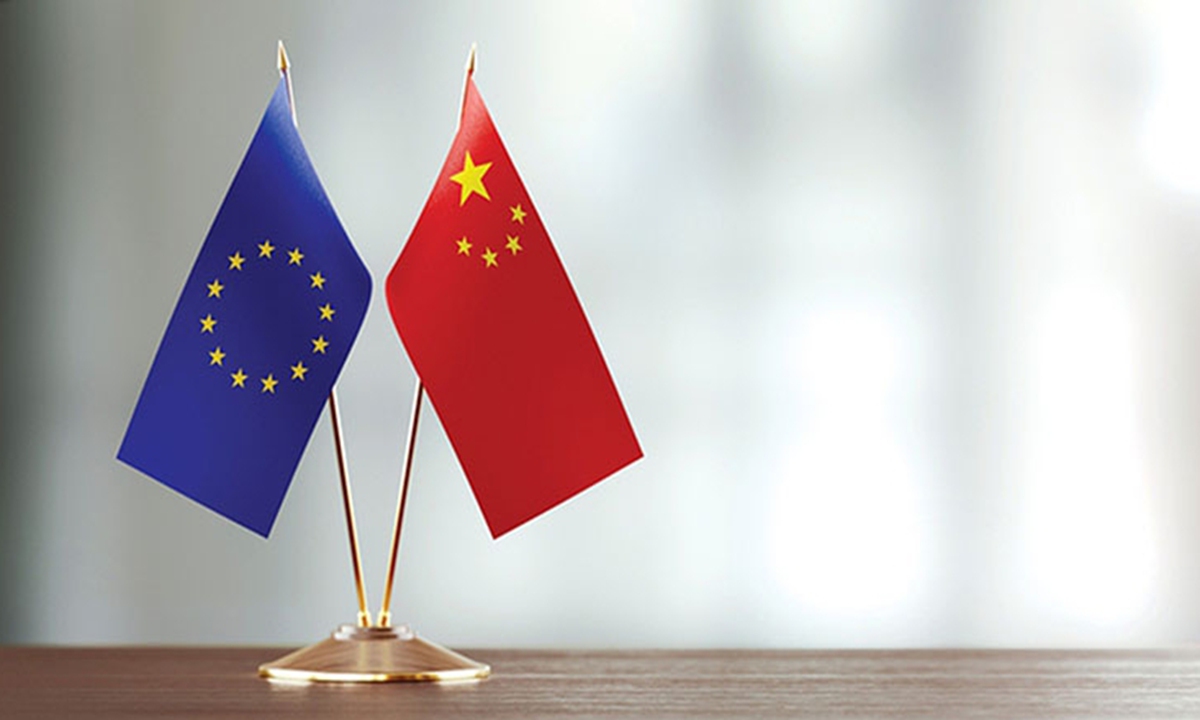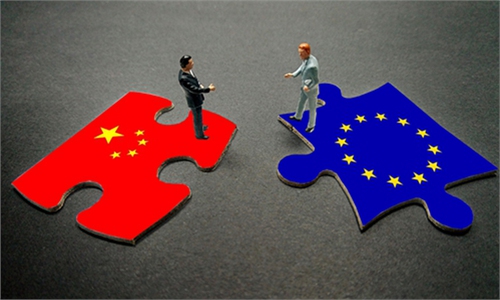EU’s Global Gateway should join hands with China rather than be a BRI alternative

Photo: VCG
The EU is hosting the Global Gateway Forum in Brussels from Wednesday to Thursday. According to EU officials, heads of state who are attending the forum include those of Bangladesh, Senegal, Namibia and Moldova.
The Global Gateway, considered by the EU policy circles as an alternative to the China-proposed Belt and Road Initiative (BRI), has some limitations. From the perspective of strategic planning for the Global Gateway, the EU promotes itself as being able to provide a "sustainable" and "transparent" project. It, either implicitly or explicitly, views the BRI as a competitor, clearly reflecting Western geopolitical intentions.
Objectively speaking, the Global Gateway has indeed pushed forward some projects. However, considering the internal and external challenges facing the EU, the Global Gateway is encountering certain development obstacles.
Economically, the current European economy and fiscal situation have been severely impacted by the Ukraine crisis. At the same time, EU assistance to Ukraine and efforts to address the current refugee problem have strained public funds. The outbreak of the Israel-Palestine conflict and political instability in some African countries have created greater political and security troubles for European companies when advancing cooperation in these countries, especially political changes in Niger and other countries. These changes reflect the serious dissatisfaction of African people with decades of "economic colonialism" by countries like France. All these constitute substantial obstacles to the advancement of the Global Gateway.
Looking at the characteristics of the Global Gateway itself, its collaboration with developing countries inevitably faces certain limitations. From a political perspective, the Global Gateway, like previous EU economic cooperation and foreign aid frameworks, has a strong flavor of European values and regulations. Promoting related project cooperation under the Global Gateway requires the host countries to accept the EU's environmental and labor standards, and even political additional conditions.
In fact, the EU does not hide its hope to gain geopolitical influence and achieve the goal of promoting and extending its "normative power" through project cooperation. However, these practices may not meet the demands for development and aversion to foreign intervention in the host countries, which will also bring about many unnecessary difficulties and costs to project construction. In terms of funding sources, the EU's Global Gateway plan only allocates funds from existing financial frameworks or policy plans with limited additional funding. It hopes to leverage the participation of private capital through the European Investment Bank and the European Bank for Reconstruction and Development, which creates significant uncertainty for funding security.
In sharp contrast, the BRI, as a collaborative proposal to advance global common development and supply connectivity, has flourished over the past decade, achieving fruitful results. The BRI has gained broad recognition and acceptance from participating countries. During the third Belt and Road Forum for International Cooperation held last week, representatives from over 150 countries and 40-plus international organizations participated, demonstrating the vitality, influence and shared vision of the BRI. The BRI transcends the dimension of infrastructure projects and promotes comprehensive economic cooperation that helps the socio-economic development of participating countries, driving the modernization process of the world. China's large market also provides a strong impetus for the development of the BRI countries. From this perspective, as one of the most popular international public products worldwide, the BRI is expected to continue its positive development trajectory.
In fact, the BRI cooperation adheres to the principles of extensive consultation, joint contribution and shared benefits and the BRI is an open, inclusive and win-win initiative. Chinese Foreign Minister Wang Yi pointed out that China's BRI is an open platform and all parties are welcome to take part in it at any time.
At the same time, China hopes that the connectivity initiatives of other countries will also be inclusive. Specifically, the BRI can be aligned with the Global Gateway strategy proposed by the EU, to leverage their respective strengths and form synergy to help developing countries speed up infrastructure development. We hope that in the future, the EU will view the alignment of China's and Europe's development strategies and connectivity initiatives in a more open-minded manner, injecting more positive energy of peace and development into the world.
The author is a research fellow with the Institute of European Studies, China Institutes of Contemporary International Relations. opinion@globaltimes.com.cn

